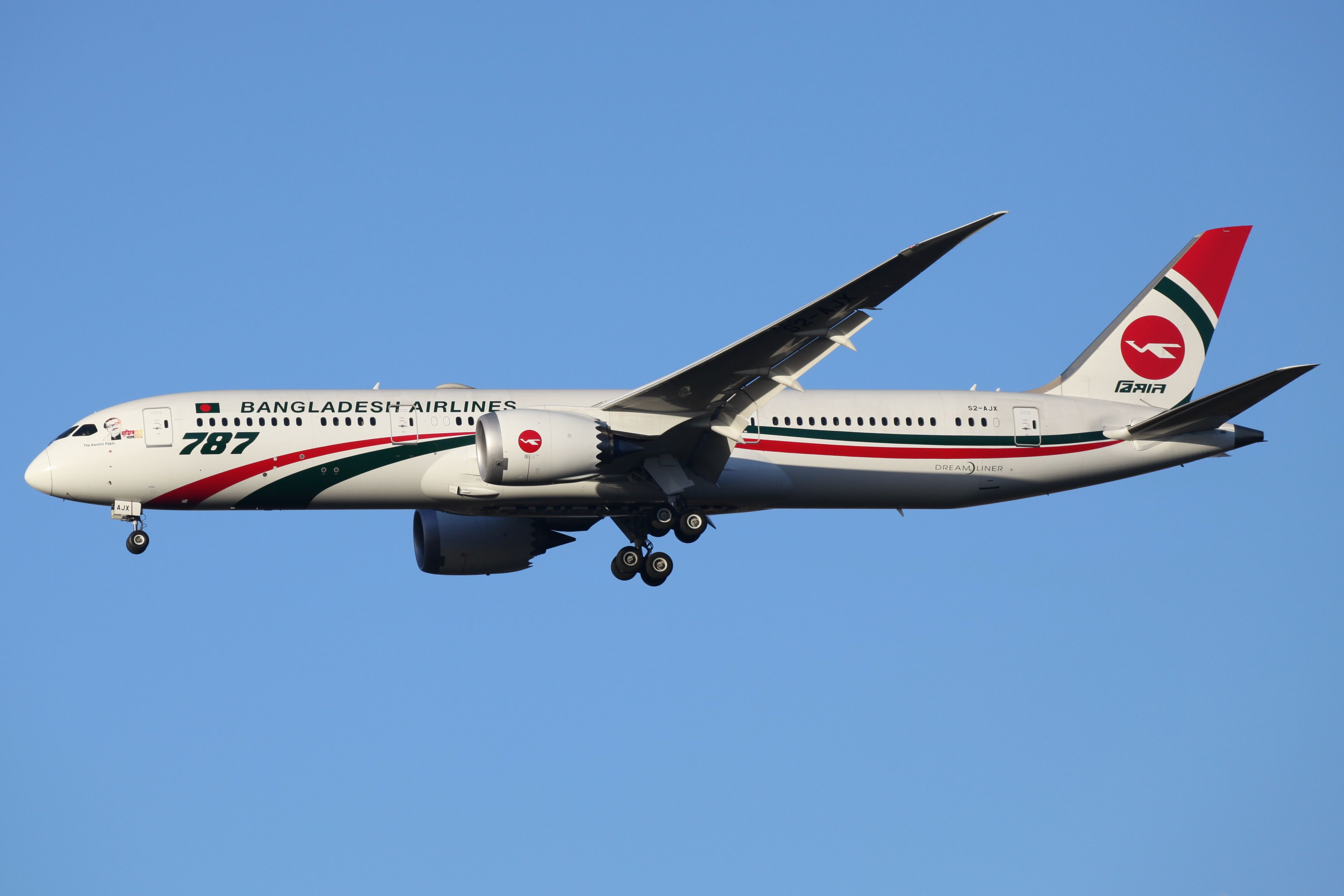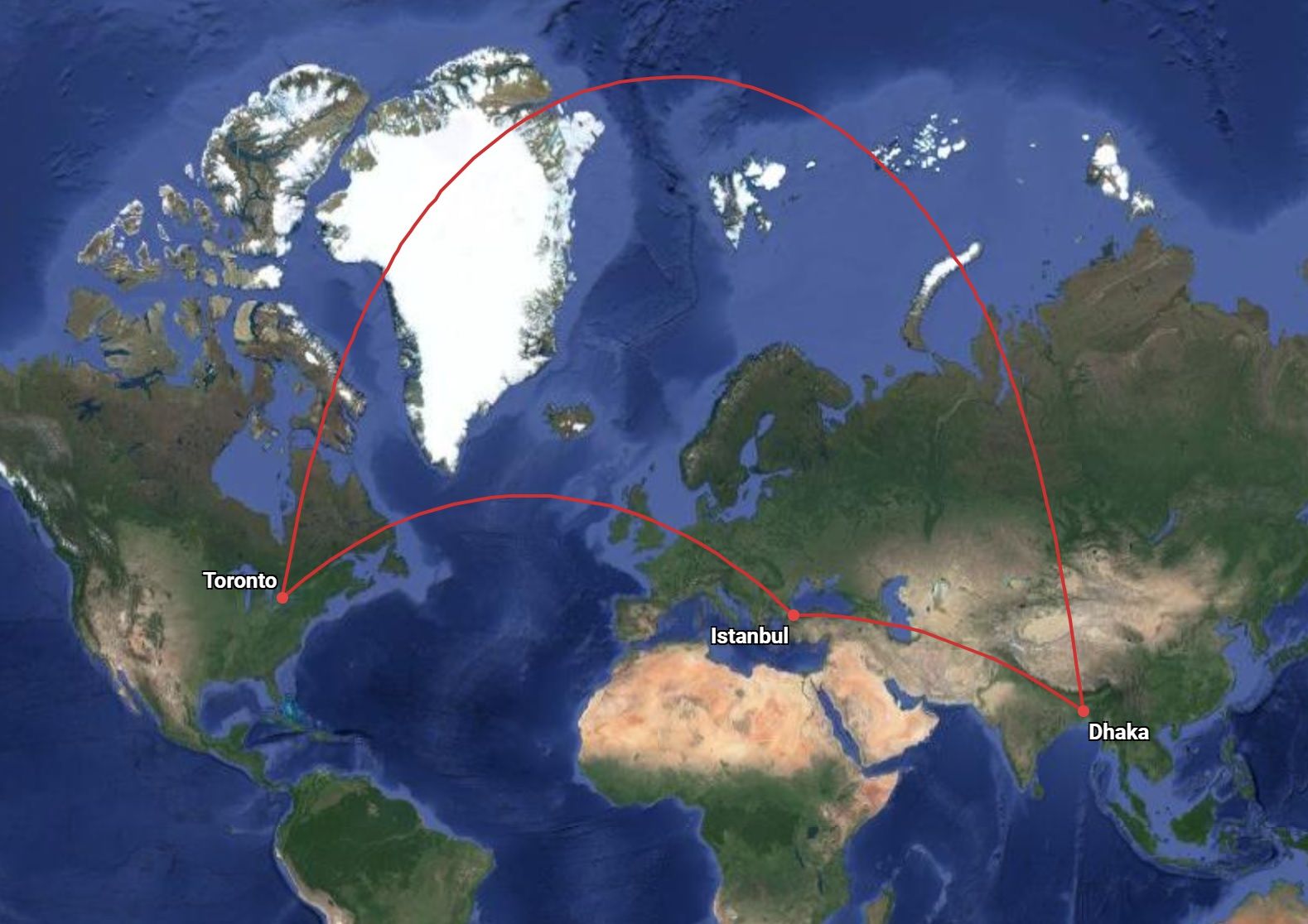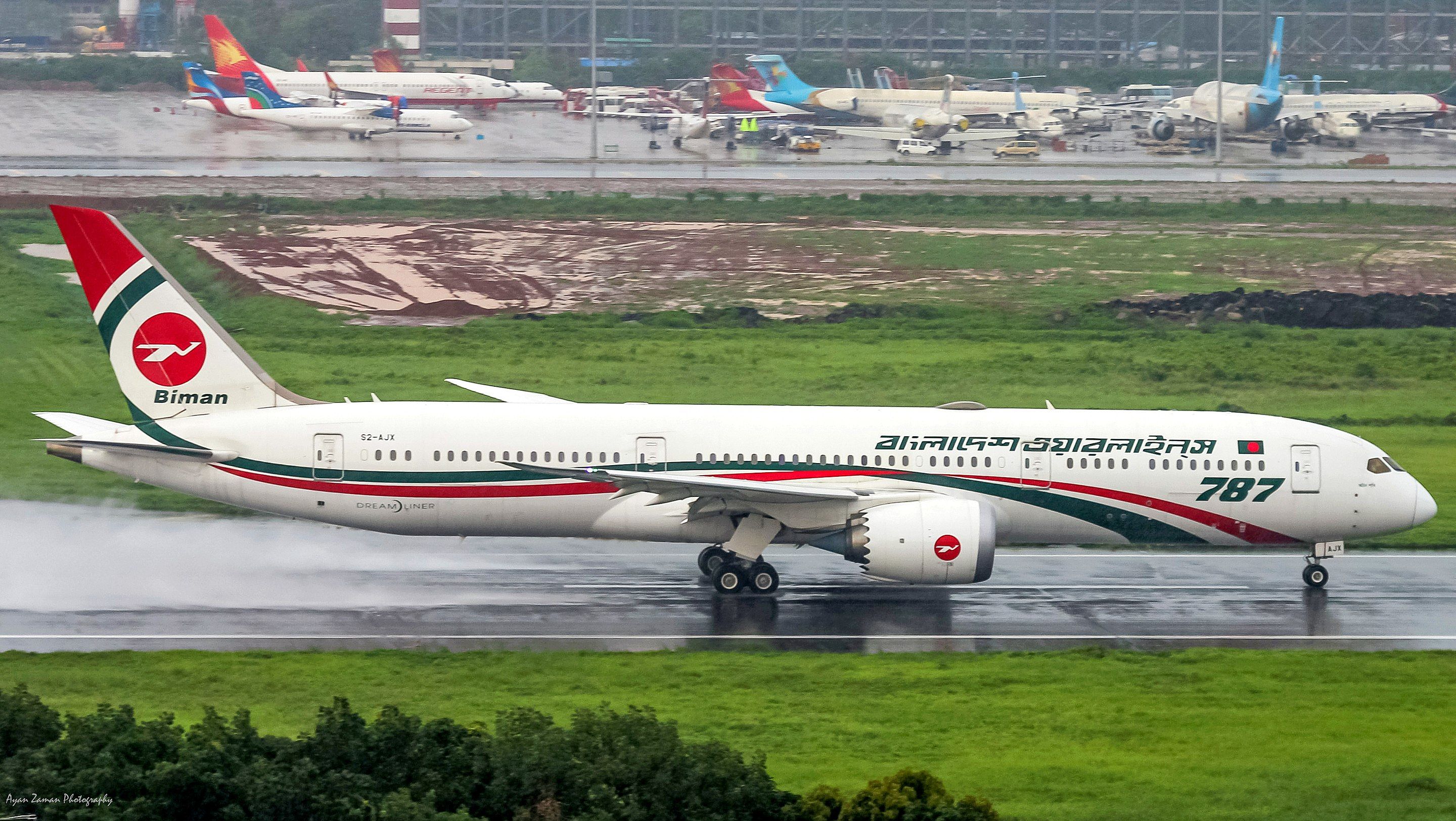It has taken a long time, but Biman Bangladesh has finally put Dhaka to Toronto on sale. While it originally planned a tech stop in Manchester, it will instead stop in Istanbul outbound (when it is flying into the wind) and non-stop back. Flights are on sale just over three months after it operated a one-off to Toronto, presumably as a test flight and for PR reasons.
Dhaka to Toronto
The first flight takes off on July 27th, exactly one month from the day this article is written. That is exceptionally little lead-in time for a new route, let alone a very long one, which is concerning.
The outbound service, routing via Istanbul, is 8,816 miles (14,187km). It is simply a tech stop to refuel. It doesn't have traffic rights to carry passengers between Bangladesh and Turkey or between Turkey and Canada. In contrast, the route is non-stop inbound, at some 7,742 miles (12,459km).
Toronto will use the B787-9, which has 298 seats. There are 30 fully flat beds in business, 21 seats in premium economy, and 247 in standard economy. Running on Wednesdays and Sundays, Toronto is scheduled as follows, with all times local:
- Dhaka to Toronto: BG305, Wednesdays: 03:30-15:25; Sundays: 03:00-15:00 (both have 1h stop in Istanbul; block time of 20h 25m)
- Toronto to Dhaka: BG306, 21:00-23:00+1 (non-stop; 16h)
Stay aware: Sign up for my weekly new routes newsletter.
46,456 passengers
The year 2019 is the best year to look at passenger traffic, as it is unaffected by temporary coronavirus-driven changes. Booking data shows that Dhaka-Toronto had 46,456 roundtrip passengers in that year. If split across the whole period, it had passengers daily each way (PDEW) of 64.
The biggest chunk of passengers – over one-third – used Emirates, transiting in Dubai. Also in the top five were Turkish Airlines, Air India, Cathay Pacific, and Kuwait Airways. Emirates was so dominant that it had around the same passenger volume as the other four combined.
Toronto was Dhaka's second-largest market to North America. It was behind only JFK with 155,282 passengers (PDEW: 213). After Toronto, the next largest was Washington Dulles, with 24,278 (PDEW: 33).
Discover more aviation news.
Toronto... but no JFK
Biman Bangladesh will, of course, be heavily relying on visiting friends and relatives (VFR) demand. Generally, this is the lowest-yielding of all market segments and isn't conducive to profitability for full-frills airlines, at least on long routes, and perhaps now more than ever given the fuel price.
According to booking data, the average one-way fare for Dhaka-Toronto was US$691, excluding any fuel surcharge (20%+, kept by the airline) and government taxes. Despite being a much larger market, Dhaka-JFK was 37% lower at $435 – and JFK is 1.8% longer, increasing operating costs. No wonder Biman Bangladesh hasn't chosen to serve JFK, which would undoubtedly be a prestige route.
When divided by miles, Dhaka-Toronto has a 24% higher fare per mile than even Dhaka-London Heathrow, at $0.089 versus $0.072. At the very least, it is pleasing to see this.
What do you make of Dhaka-Toronto? Let us know in the comments.



